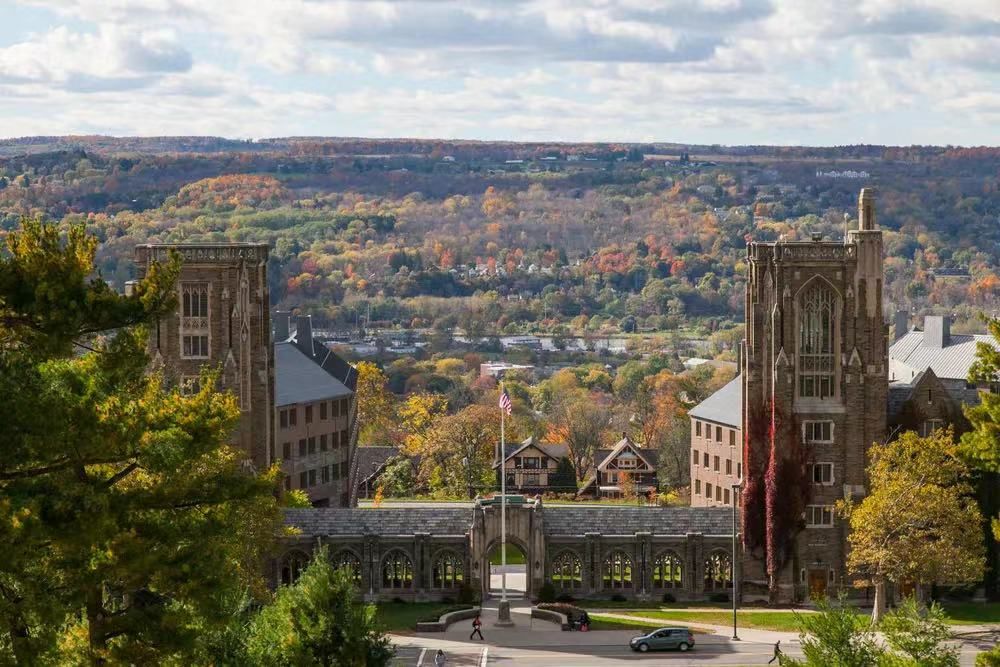Ivy Day—the day when Ivy League admissions decisions are handed out, is right around the corner at the end of March. As you know, applying to Ivy League schools can produce three different outcomes: acceptance, rejection, or waitlist. None of these three outcomes is based on absolute data. As you can tell by analyzing scattergrams on Naviance, it takes more than test scores and GPA to get in to an Ivy League college, though those factors almost always must be extremely strong as well.
Still, what is good enough for acceptance one year may not be good enough another year. Also, a high school’s matriculation performance can vary dramatically from year to year. Similarly, the exact same student applying to the same school in different years can have different outcomes. Why? It has to do with the pool of applicants that you are in. A stronger pool means that admissions will be more selective. This is on top of the fact that far more valedictorians, and those with perfect test scores, are rejected from Ivy League colleges than are accepted—far more, and the numbers are even close!
There are 40,000 valedictorians in the U.S. each year. Yet, the total number of Ivy League acceptances each year is around 25,000. Even if colleges accepted every valedictorian from across the country and didn’t take any legacy students, athletes, international students, homeschooled students, or students with special accomplishments or circumstances, it would still mean that around the same number of valedictorians were rejected as accepted. Does this mean that the valedictorians did something wrong or could have done something better? No, it is always about the other guys in the applicant pool. For one or a number of reasons, colleges just like some students better than others.
In other words, Ivy League admission outcomes are more often about the other guys than they are about you. If you are not among the 2000 students accepted to Harvard, it is because Harvard felt that those 2000 were better suited to Harvard than you were. That does not mean there’s anything wrong with you. With roughly 55,000 applications received, Harvard must make some tough decisions. So don’t look in the mirror and say, “What did I do wrong,” or, “What is wrong with me?” It is not about you. It is about the 2000 other students.
If you are accepted, it is because the Ivy League institution that accepted you believes that you will make a significant contribution to its campus and culture. Again, it is not about you, is about them—however “them,” in this case, refers to the colleges themselves. College admission is a selfish process that is intended to benefit the college more than it benefits the student. If a college feels that you bring something of value, and that you do so better than the other guys who bring something similar, you have a good chance of getting in. That value may be as simple as outstanding academics, or it may be far more complex such as having saved someone’s life, being an Olympic gold medalist, having founded a company, having multiple patents for a new revolutionary device, or being an All-American high school linebacker from Birmingham, Alabama. To use a metaphor, you can either be a very long mountain range, or a very tall mountain.
If you are rejected, try not to take it personally. Chances are that you would have done very well had you been accepted. It has nothing to do with you and everything to do with the other guys. Just accept that you live in a time when 90% to 95% of applicants to Ivy League colleges are rejected. Rejection from an Ivy League school is not an indictment of your ability or of you as a person. It is an acknowledgment of a statistical reality. If you were able to go back four years and relive your high school years, perhaps you could have done some things that would have made you a stronger candidate. That much is true. But it also may have made no difference whatsoever, because there still may have been 20,000 other guys that the Ivy League colleges felt would make a stronger contribution to their campuses. Also, there are so many superb colleges out there that are not Ivy League colleges that would be superb places for you to spend the next four years. There are fabulous tech schools, research universities, liberal arts schools, and other gems that would be more appreciative of your talents and your potential.
Finally, if you are waitlisted, you can and should have very mixed feelings. Being waitlisted means that the college didn’t want to let go of you just yet. They saw something in you that makes them want to hold on and possibly give you one more chance, based on the decisions they receive from their pool of accepted students. You are at the top of the rejected pool; the best of the rest. And, it also means that you still have a chance to get into your dream Ivy League school. If you are still interested, be sure to inform the school that you will accept a place on the waiting list. Be sure to write a strong letter of continued interest.

